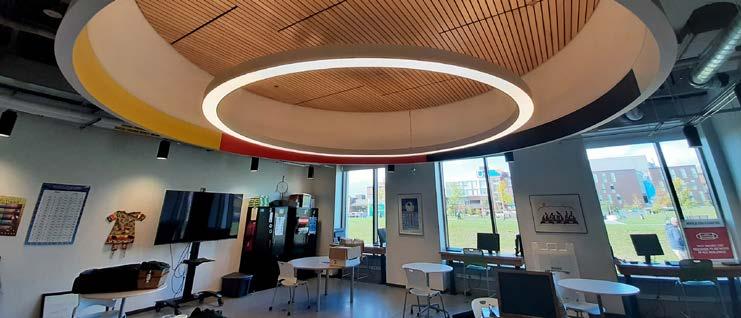
1 minute read
DC dental program chomps COVID-19
sonal Protective Equipment (PPE) including face shields, gowns, masks, and gloves.
Jon Wilson
Advertisement
The Chronicle
Dental Hygiene is a program at Durham College (DC) that traditionally requires students to work on real patients.
So how does a program with about 200 students needing to do hands-on work operate during the COVID-19 pandemic?
Astrid Stolpmann and Ariel Gilmore are two people with answers.
Stolpmann is a professor and Gilmore is a third-year student who lives at home in Ajax.
At the beginning of the pan- demic, nobody was allowed in the clinic at all, Stolpmann said. Now 24 people are allowed inside, she said. Students are treating some patients in person on campus and in addition, faculty are delivering several classes online.
According to Stolpmann, the changes have had a significant effect on both the students and the faculty.
“It’s been pretty devastating. And I mean going online, shifting all the theory back to online, it’s been pretty challenging," she said.
To protect themselves from COVID-19, students in the program must wear five layers of Per-
This has led to students being stressed out and has caused some of them to faint because of how much the added PPE causes them to sweat, according to Gilmore.
Gilmore drives to DC, and is doing in-person and online theory classes three times a week.
Even with all the extra precautions, Stolpmann still feels comfortable being on campus.
“I feel much better now that we’re all fully vaccinated and the strong protocols are in place. It was always safe, relatively speaking, safer than anywhere else ya know outside. But from the student’s sake now that we know everybody’s vaccinated and the environment is getting safer and safer that makes it better," she said.
Patients of the clinic are asked to take part in a questionnaire before they arrive and after they leave. Given the reduced numbers in the clinic, guests or family members are being discouraged from joining their patients during appointments.
Despite the challenges, Stolpnmann is pleased with how faculty and students have responded.
“It’s been hard on students. There’s a lot of mental health that goes along with that, a lot of stresses, because of COVID. So, if there’s anything this has proved is that we’re very adaptable and that we can do this, and I think that was really extraordinary.”
As for Gilmore, she's looking forward to graduating, working and travelling.
“I want to travel to Thailand and Greece, but I need to save up my money first.”










